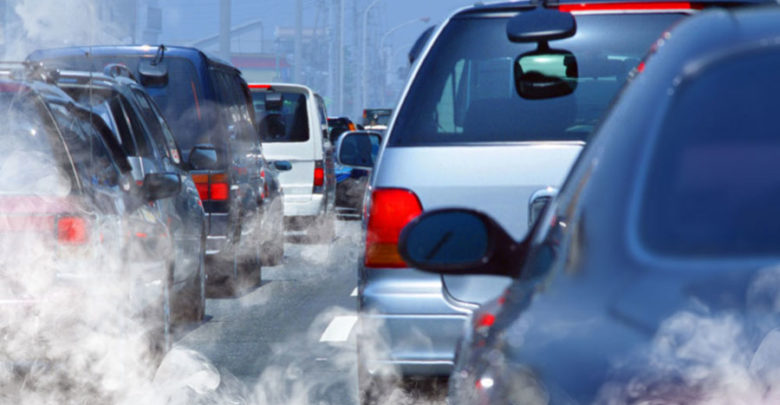
Theme: Environment
The Environmental Protection Agency of Ghana, with support from UN Environment and the Swedish International Development Cooperation Agency, drafted its Motor Vehicle Emission Standards and Regulations. The document was disseminated for review at a broader national stakeholder workshop from 20 – 21 June 2018 at the Institute of Environmental Studies in Amasaman, Ghana.![]()
The objectives of the workshop, presented by Mr. Emmanuel Appoh, the Project Focal Officer and Deputy Director, Environmental Quality Department, Environmental Protection Agency of Ghana, were to:
Engage stakeholders on the draft vehicular emissions standards and regulations
Share experiences and best practices on implementing vehicular emissions standards and regulations in Ghana and the sub-region in general
Solicit inputs from the stakeholders to finalize the draft vehicular emission standards and regulations
Help disseminate the draft vehicle emission standards and regulations in Ghana
The first part of day one of the workshop consisted of a technical session with presentations on the project to disseminate the Vehicle Emission Standards and Regulations, followed by discussions. Presentations included:
“Efforts towards Motor Vehicle Emission Standards & Regulations in Africa” by Mr. David Rubia, UN Environment
“Motor Vehicle Emission Standards & Regulations in Ghana” by Mr. Emmanuel Appoh, Environmental Protection Agency of Ghana
“Impact of Clean Fuels on Implementation of Motor Vehicle Emission Standards and Regulations” by Ms. Alpha Welbeck, National Petroleum Authority
“Benefits of Implementing Motor Vehicle Exhaust Emissions Standards and Regulations” by Mrs. Esi Nerquaye-Tetteh, Environmental Protection Agency of Ghana
In the second part of day one, the participants were divided into two groups to deliberate on developing a roadmap and implementation strategies for the Motor Vehicle Emission Standards and Regulations as well as reviewing the adequacy of country logistics (i.e. modern equipment, capacities, and maintenance facilities/garages, emission testing duration, and testing frequencies, etc.) for smooth implementation.
During day two of the workshop, four groups were formed. Each of the groups was tasked to review specific sections of the main article for adequacy and propose improvements as well as implementation strategies.
All groups summarized the outcomes from their discussions and these were presented to the plenary. Some of the key recommendations proposed during the stakeholder’s engagement workshop are as follows:
There is a need to involve all stakeholders or actors such as vehicle owners, dealers, testers, users of vehicles, policy makers, media, schools/institutions, transport unions and association groups in dissemination
Capacity-building for personnel of the Environmental Protection Agency, Driver Vehicle and Licensing Authority, Ghana Standards Authority, and private test station operators on the standards and regulations, the use and calibration of the equipment, etc.
Institutional collaboration among all stakeholders was deemed paramount, such as the need for further consultation and engagement between key agencies on the modalities for implementation of the standards and regulations
There is a need to speed up full implementation of fuel quality standards (e.g. max 50ppm diesel sulphur content nationwide from local refining) to protect motorists through the fuel they buy
There is need to set guidelines/specifications for emission control systems on vehicles (i.e. exhaust gas recirculation, catalytic converters, diesel particulate filters, etc.) that would help meet and/or exceed the emissions requirements
Testing garages should be evenly spread across the country and not concentrated around major urban areas only. All testing equipment should be adequately calibrated and maintained. All testing data should be maintained and stored. Testing can be done for parameters not intended to be regulated – for example CO2 and O3 – so as to build a database for use in national planning
There was a robust discussion on emission testing offences and penalties for non-compliance, and power of arrest for emission officer
There is a need to identify funding needs for implementation
The workshop was attended by over 75 participants drawn from government agencies and ministries responsible for standards and regulation, environmental regulators, the media, and institutions involved in the transport sector. These included representatives from Office of Attorney General, Ghana Standards Authority, Environmental Protection Agency of Ghana, the Media, Ghana Ports and Harbours Authority, National Petroleum Authority, Ghana Atomic Energy Commission, National Road Safety Commission, Driver Vehicle and Licensing Authority, Ministry of Transport, Ministry of Environment Science, Technology and Innovation, University of Ghana, Ghana Road Transport Coordination Council, Toyota Ghana Limited, Daewoo Motors Ghana Limited, and UN Environment amongst others.
Mr. John Pwamang, Executive Director (Ag.) of the Environmental Protection Agency of Ghana officially opened the workshop and also gave the welcome address. The keynote address was presented by Mrs. Levina Owusu on behalf of the Hon. Minister of Environment, Science, Technology and Innovation. Goodwill statements were provided by:
Mr. David Rubia, Programme Officer Project Focal Point from UN Environment
Mr. Isaac Ofori Poku, Chief Executive Officer of Daewoo Motors Ghana Limited
Mr. Gabriel Adu Sarpong from National Road Safety Commission
Mr. Emmanuel Pink Dankwah Ghana Road Transport Coordinating Council
Mr. Isaac Mensah from Toyota Ghana Company Limited
Press Release







